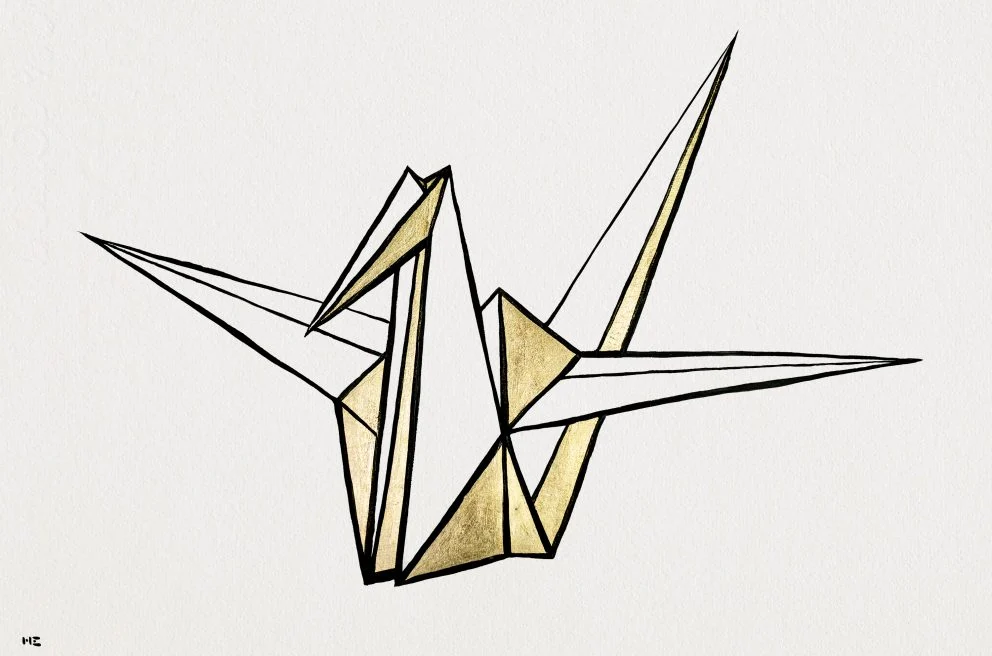Japanese atomic bomb survivors win Nobel Peace Prize
Nihon Hidankyo receives the prize for their work toward achieving a nuclear-free world
Gaea Cabico • October 11, 2024

An illustration of a paper crane, a symbol of healing in Japan [Credit: Niklas Elmehed © Nobel Prize Outreach]
A Japanese grassroots movement of atomic bomb survivors was awarded the 2024 Nobel Peace Prize on Friday for its efforts to “achieve a world free of nuclear weapons.”
The Japanese Confederation of A- and H-Bomb Sufferers Organization, a group commonly referred to as Nihon Hidankyo, received the prize a year before the 80th anniversary of the U.S. atomic bombings of Hiroshima and Nagasaki.
The accolade also comes at a time when concerns over the potential use of nuclear weapons are rising.
Through witness testimony, Nihon Hidankyo demonstrated that “nuclear weapons must never be used again,” said Jørgen Watne Frydnes, chair of the Norwegian Nobel Committee, during the prize’s announcement.
Frydnes said the survivors of the U.S. atomic bombings of Hiroshima and Nagasaki in 1945 “helped us describe the indescribable, to think the unthinkable, and grasp the incomprehensible pain and suffering caused by nuclear weapons.”
Nihon Hidankyo was established in August 1956, 11 years after the atomic bombings devastated the two Japanese cities and killed over 200,000 people. The years following the bombings saw many survivors succumb to burn injuries, cancer, and other illnesses caused by radiation exposure.
Nihon Hidankyo is the sole national organization representing Japanese atomic bomb survivors. As of March 2016, the group reported approximately 174,000 survivors remaining in Japan.
“[The win] will be a great force to appeal to the world that the abolition of nuclear weapons and everlasting peace can be achieved,” Nihon Hidankyo co-chair, Toshiyuki Mimaki, said at a press conference in Hiroshima.
The Norwegian Nobel Committee said Nihon Hindanyo’s campaign has “contributed greatly to the establishment of the nuclear taboo.”
The group has issued public appeals for the elimination of nuclear weapons, and has sent survivors to the United Nations and peace conferences to share their experiences of atomic bombings.
Nuclear weapons have not been used since the end of World War II. But the Nobel committee expressed concern that the international norm against the use of nuclear weapons is “under pressure.”
Last month, Russian President Vladimir Putin warned that the country was considering changes to its nuclear doctrine following Ukraine’s request to use long-range Western missiles. Meanwhile, North Korea continues to expand its nuclear arsenal, which it said is necessary to counter threats from the United States.
“When we look at the developments and conflicts around the world, we see how crucial it is to uphold a nuclear taboo,” Frydnes said.
“At this moment in human history, it is worth reminding ourselves what nuclear weapons are: the most destructive weapons the world has ever seen,” he added.